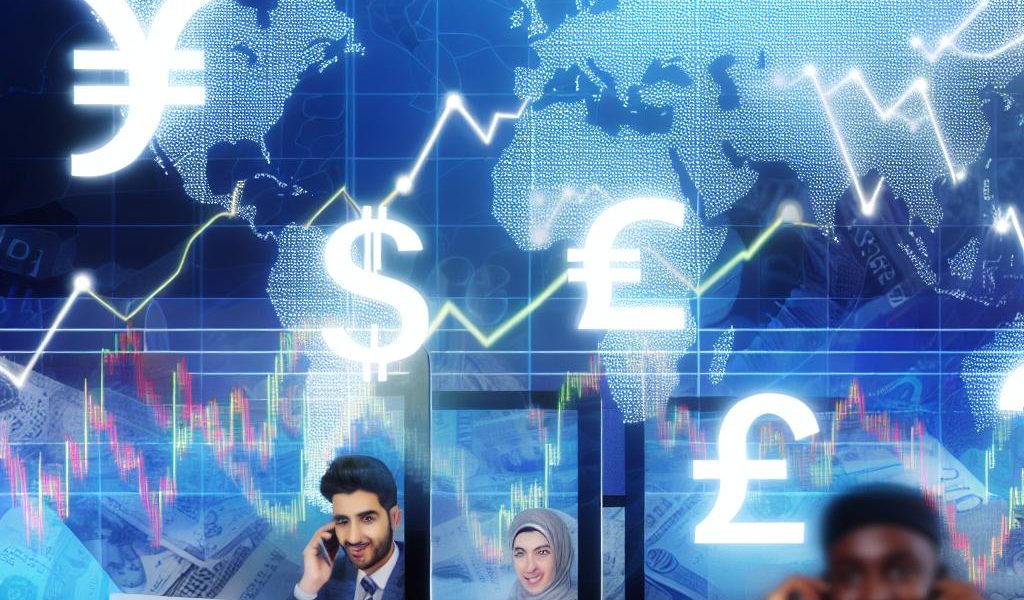
How the forex market facilitates international trade?
admin - April 2, 2025The Role of the Forex Market in International Trade
The foreign exchange market, commonly known as the forex market, is a cornerstone in the realm of international trade. As the largest and most liquid financial market worldwide, it boasts a daily trading volume surpassing six trillion dollars. This remarkable scale of activity underscores the forex market’s importance in providing a mechanism for currency conversion, thus enabling companies to engage in international commerce with efficiency and effectiveness. Companies involved in cross-border transactions must have a deep comprehension of how the forex market operates to navigate the complex landscape of global trade.
Exploring Forex Trading and Global Impact can provide businesses with valuable insights into currency exchange dynamics.
Currency Conversion and Exchange Rates
A critical function of the forex market is its capacity to facilitate the seamless exchange of currencies. International trade transactions inherently involve parties from diverse geographical locations, each utilizing their own local currency. The necessity for currency conversion arises because, in order for trade to occur, a common medium of exchange is required. The forex market fulfills this need by serving as the venue where exchange rates are established, based on the principles of supply and demand.
To illustrate, consider a business transaction where a company based in the United States seeks to import automotive parts from a German supplier. The U.S. company must convert its local currency, the U.S. dollar, to the euro, the currency in which the German supplier operates. The forex market enables this conversion by providing a platform where the current value of the dollar vis-a-vis the euro is determined, allowing both parties to proceed with their transaction efficiently.
Hedging Foreign Exchange Risk
Beyond currency conversion, the forex market is instrumental in the management of foreign exchange risk, an inherent challenge in international trade. Exchange rate volatility can lead to significant fluctuations in the cost of imports and affect the profitability of exports. Businesses can employ various financial instruments to mitigate these risks and ensure more predictable outcomes in their international dealings.
Hedging is a strategy that allows businesses to protect themselves from adverse exchange rate movements. By employing financial derivatives such as forward contracts, futures, and options, companies can lock in specific exchange rates for future transactions. This approach enables businesses to stabilize cash flows, manage costs more effectively, and better predict their revenues, thereby supporting more accurate and reliable financial planning.
Facilitating Global Investment
The impact of the forex market extends beyond trade, playing a pivotal role in promoting global investment. Investors across the globe rely on the forex market to facilitate the exchange of currencies necessary for foreign investments in diverse sectors such as equities, bonds, or real estate. This movement of capital across borders not only aids in diversifying investment portfolios but also fuels economic growth and development in various countries.
Global investment facilitated by the forex market can lead to increased employment opportunities, technological advancements, and improved infrastructure in emerging markets. As investors allocate their resources internationally, they help stimulate economic activity, fostering development and bringing about greater integration of global economies.
Promoting Economic Stability
The forex market also plays a crucial role in promoting economic stability and growth, indirectly supporting international trade. The stability of exchange rates is fundamental for international traders who depend on predictable currency conditions to plan and forecast their operations effectively. Price stability in the forex market reduces the element of uncertainty, enabling businesses to engage in long-term trade agreements and investments without the constant worry of sudden and unpredictable exchange rate shifts. Furthermore, central banks around the world often intervene in the forex market to stabilize or influence their national currency’s value, further contributing to economic stability. A well-functioning forex market, therefore, acts as a buffer against economic shocks, ensuring continuity and consistency in trade.
Conclusion
In conclusion, the foreign exchange market is an indispensable element of international trade, providing the essential infrastructure for currency conversion, minimizing exchange rate risks, facilitating global investment, and promoting economic stability. Its vast and efficient operation forms the backbone for international trade activities across the globe, underpinning the economic interactions that enable businesses and nations to thrive. A thorough understanding and strategic leveraging of the forex market’s capabilities can significantly enhance a company’s performance in international markets, ultimately contributing to broader economic prosperity. Through its myriad functions and influences, the forex market continues to play a pivotal role in shaping the contours of the global economy.
This article was last updated on: April 2, 2025
